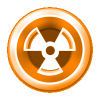Building EDuke32 on Linux
Prelude
All Linux distributions do pretty much the same things but a bit different. Below are some instructions for getting EDuke32 running on Fedora Core 6.
Building EDuke32 on Fedora Core 6
Submitted By: Casey Mynott (bigjeep95) Jan 6, 2007 11:30pm (British Columbia, Canada)
This information covers:
-Installation on Fedora Core 6 with the latest EDuke32 source files
-Adding the HRP (High Resolution Packages) <-- these are amazing and brings Duke Nukem 3d into the year 2000!
-Adding sound
Notes:
1. You need an actual copy of Duke Nukem 3D. The shareware vesion can be found here. [1]
2. I had HUGE problems using my 128mb ATI graphics card. After I switched to an older 64mb nvidia card and used the LIVNA drivers life was great. So, use an NVIDIA graphics card and use the LIVNA repo to get your drivers. Maybe one day ATI and Linux will be friends but that day is not here.
Step #1 - You need to acquire the source packages for EDuke32.
You need both the eduke32 source and txbuild source files. Download them to your desktop from here. [2]
Step #2 - Create two folders on your desktop.
I chose to create "duke3d" and "build" folders. Why these names? Well, when you build the required EDuke32 files from the "duke3d" folder it looks to the "build" folder for required information.
Step #3 - Prepare Fedora Core 6 for the build process
Fedora needs some packages installed before you can properly build the required files. So, what files do you need? Under Yum Extender GUI or in a terminal window you need to install these files. Here's the list:
SDL
nasm
libstdc++
Step #4 - Building the EDuke32 files.
In a terminal window move to the duke3d folder you created ealier. In that folder all you should have to type is "make".
Step #5 - Confirm the files that were created.
Six files should have been created:
mapster32.map
mapster32.sym
mapster32 (executable)
eduke32.map
eduke32.sym
eduke32 (exectuable)
Step 6 - Combine all the files.
You need to have the original Duke Nukem files and the newly created EDuke32 files in the same place. So, you could create a new folder on your desktop (example eduke32_linux) and copy the original game files and the newly created EDuke32 files there.
Step 7 - Run the game!
If you have done everything correctly then the game should run great.
